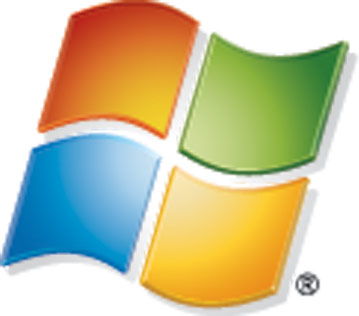
Seeking to satisfy European antitrust officials, Microsoft said on Thursday that it would open up and share many more of its technical secrets with the rest of the software industry and competitors according to this NYTimes.com article
It is now the era of convergence. If Microsoft does not open up, then it is set to fail. I think this is the reason for this sudden generosity. The world's standards have now evolved and Microsoft has been forced to evolve with it.
Microsoft executives, in a conference call, the article mentions that they have characterized the announcement as a “strategic shift” in the company’s business practices and its handling of technical information. They also portrayed the moves as only partly a nod to the continuing challenge Microsoft faces from Europe’s antitrust regulators.
The broader goal, they said, is to bring Microsoft’s flagship personal computer products — the Windows operating system and Office productivity programs — further into the Internet era of computing. Increasingly, people want a seamless flow of documents, data and programming code among desktop PCs and the Internet, especially as they make the shift from using software on a PC to using services on the Web.
“These steps are being taken on our own,” said Steven A. Ballmer, Microsoft’s chief executive. The move, he said, was a recognition of Microsoft’s “unique legal situation,” but it was also the company’s effort to adapt to “the opportunities and risks of a more connected, more services-oriented world.”
Microsoft’s first step will be to put on its Web site 30,000 pages of technical documentation detailing how its Windows desktop and Microsoft server programs communicate and share information. Until now, that information was treated as a trade secret and was available only under a special license.
Ray Ozzie, Microsoft’s chief software architect, said that by sharing more information, Microsoft would make it easier for others to write Internet programs that tap into personal information on a PC.
That, Mr. Ozzie added, should bring new sets of Web services that, for example, might match a person’s calendar information with a doctor’s schedule. Then smart software could make an appointment. At home, he noted, someone’s digital collection of music, movies and family photos would be more easily shuffled to different devices and screens.
“The Internet opens up a world of potential innovation,” Mr. Ozzie said. “And I think we’ve just scratched the surface.”
Microsoft announced other plans to open up its technology, like allowing developers to add more non-Microsoft document formats to its Office word processing and spreadsheet programs. Microsoft also made commitments to increase its support for industry standards and work with open-source software developers.
European regulators and others have long accused Microsoft of using its dominance in PC operating systems and software to lock out competitors. Last October, after a nine-year confrontation and a ruling against the company by Europe’s second-highest court, Microsoft agreed to share information with rivals on terms it had long resisted. Then, after fresh complaints from Microsoft’s competitors, the European antitrust regulators last month announced that they were opening new investigations of the company.
The new inquiry focuses partly on whether Microsoft has withheld essential information from competitors that want to make products that work smoothly with its Office programs. The Office products were not part of the previous European action against Microsoft.
After the Microsoft announcement on Thursday, the European Commission issued a skeptical statement. The commission said it “would welcome any move towards genuine interoperability,” or allowing software programs from different companies to work smoothly together. But the commission noted that “today’s announcement follows at least four similar statements by Microsoft in the past on the importance of interoperability.”
Asked about the commission’s statement, Bradford L. Smith, Microsoft’s general counsel, said that the company’s moves were “qualitatively and quantitatively different from anything we’ve done in the past.”
“People will test us not just by our words but by our actions,” Mr. Smith added.
The industry is taking a wait-and-see stance on Microsoft’s plan. Linux, an open-source competitor to Windows, stands to benefit from Microsoft’s more open posture. Regulators and competition are “forcing Microsoft to change the way it does business,” said James Zemlin, executive director of the Linux Foundation, a nonprofit consortium.
The change comes as Microsoft is trying to buy Yahoo, a huge deal that, if it proceeds, will be closely scrutinized by antitrust officials worldwide. The European regulators typically take a harder line than their American counterparts in challenging takeovers.
“To get the deal approved, Microsoft has to convince the European regulators that it has changed its spots on interoperability, no longer acting like a proprietary monopoly,” said Ken Wasch, president of the Software and Information Industry Association, a trade group that includes Microsoft competitors like I.B.M., Oracle, Sun Microsystems and Red Hat.
Microsoft is also trying to win approval from an international standards body for its new document format, Office Open XML. Microsoft contends its format is “open,” meaning files in the format can be created and read by anyone.
A different format standard for Internet-based computing, the OpenDocument Format, is supported by I.B.M., Google, Oracle and other Microsoft rivals. They assert that the proposed Microsoft standard is complex and layered with the company’s own features, making it effectively a corporate standard instead of a truly open one.
Last September, Microsoft failed to win enough support for its standard from the International Organization for Standardization. But the standards body will review that decision in proceedings that begin next week.
(image from istartedsomething.com)
No comments:
Post a Comment